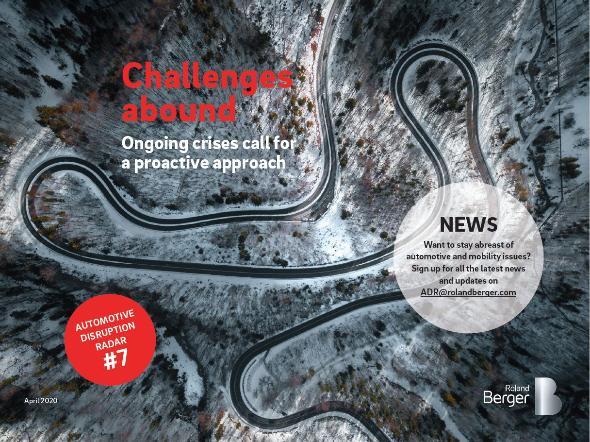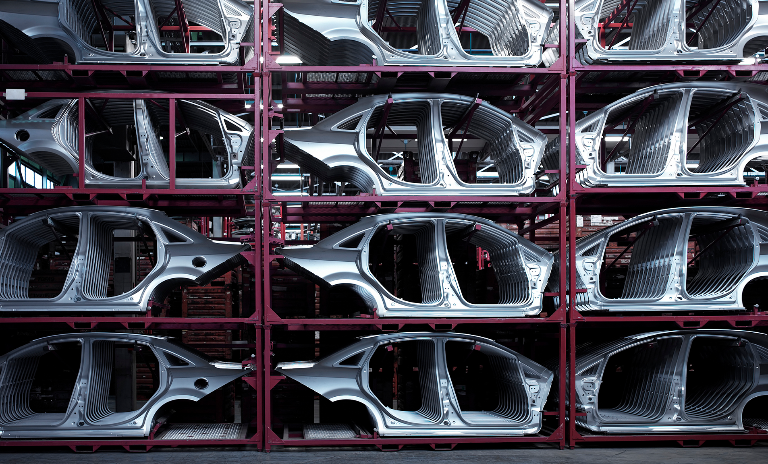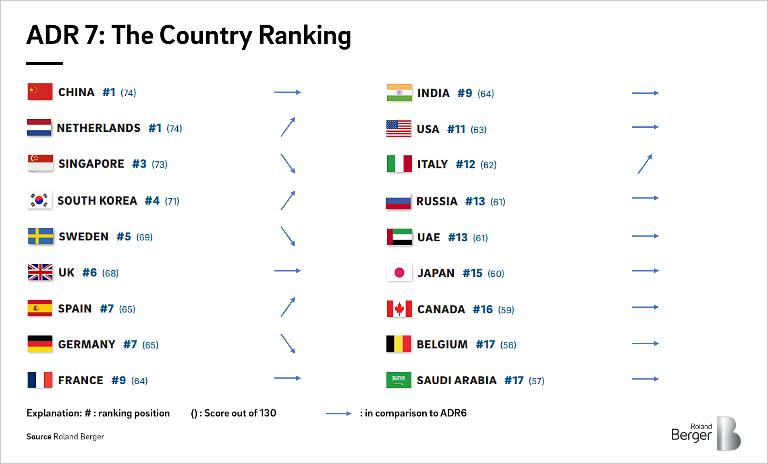automotive-disruption-radar.com
Pandemic may accelerate disruption in the automotive industry
![{[downloads[language].preview]}](https://www.rolandberger.com/publications/publication_image/provisonal_coverimage_1_download_preview.jpg)
Disruptive change in the automotive industry: Read our study on how the trends are developing.


The automotive industry already had plenty of roadblocks to overcome in the coming years: compliance with climate targets, declining sales figures worldwide, new competition, trade wars between states and a high need for investment in new technologies. These challenges are now being joined by the corona pandemic, which will cause unprecedented damage to the economy. In our most negative forecast, Roland Berger expects the automotive market to collapse by up to 40 percent and it is unclear when the market will recover. One thing is certain: In the already tense situation, the crisis has the potential to change the automotive industry in the long term.
New Mobility concepts, Autonomous driving, the use and development of Digital services and the Electrification of the powertrain – MADE for short – are seen as the basis for a disruptive change in the automotive industry. For this reason, Roland Berger has been regularly analyzing the course and impact of these trends over the last three years in the "Automotive Disruption Radar" (ADR), which is published every six months. In our seventh issue, we can see that new technology will continue to consolidate its position in the market. A regulatory framework for autonomous driving is slowly developing across all 18 countries we examined. Charging infrastructure is also being expanded upon more heavily. For example, network coverage with charging points has tripled since our first "Automotive Disruption Radar." In addition, customer acceptance of these new technologies is increasing worldwide.
When it comes to the topic of autonomous driving, individual projects stand out. In the USA, for example, Walmart is expanding its range of food delivery services with computer-controlled vehicles. In Europe, the airline Air France, among others, is testing an autonomous tractor for transporting luggage at Toulouse airport. In addition, in the field of logistics, the first pilot tests are being carried out on German roads with so-called truck platooning – self-propelled truck convoys. Further growth in the field of e-mobility is mainly due to progressive diversification of the range of available models. There are now over 300 different electric vehicles worldwide, most of them in China, Germany and France. Investment in the field of artificial intelligence also continues to rise for the automotive industry. Last year, 7.7 billion US dollars was invested in AI, an increase of 32 percent from 2018.
Of the countries studied, the Netherlands is particularly noteworthy. Together with China, the country shares the top position in our ranking. This confirms the ADR 6 assumption that smaller markets are able to grow more quickly in terms of infrastructure and market penetration. The Netherlands leads the way, particularly in terms of the density of charging stations. It remains to be seen whether smaller countries will be able to maintain this momentum in view of the Corona crisis.
The ADR is a biannual analysis of market trends related to disruption in the global automotive industry. Its latest findings are based on field research and a survey of over 17,000 car users across 18 markets (Belgium, Canada, China, France, Germany, India, Italy, Japan, the Netherlands, Russia, Saudi Arabia, Singapore, South Korea, Spain, Sweden, United Arab Emirates, United Kingdom, USA). The 26 indicators of ADR are grouped into five dimensions: customer interest, regulation, technology, infrastructure and industrial activity.

![{[downloads[language].preview]}](https://www.rolandberger.com/publications/publication_image/provisonal_coverimage_1_download_preview.jpg)
Disruptive change in the automotive industry: Read our study on how the trends are developing.

